
Arquivo para a ‘Jornais on-line’ Categoria
Mitigated war and distant peace
Both the Gaza Strip and Ukraine are being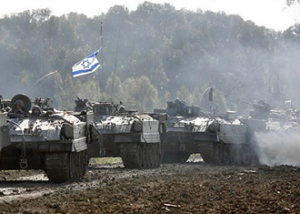 mitigated, the two main wars and the most threatening of a total war. The expectation of peace from the Trump administration has not materialized, what he wants is a Roman pax, that is, the rule of the vanquished.
mitigated, the two main wars and the most threatening of a total war. The expectation of peace from the Trump administration has not materialized, what he wants is a Roman pax, that is, the rule of the vanquished.
The current US government is negotiating rare earths with Ukraine in exchange for equipment. These earths are expensive and are used both in camera lenses and telescopes, for greater visual precision, and in oil refining, in a process called cracking.
Ukraine’s president, Volodymyr Zelensky, said on Friday (February 7) that he was willing to make this deal in exchange for support for the war. The region near the Dnipro River is rich in this ore, and reveals the true interests of the war, in addition to Ukraine’s strong grain production.
In the Gaza Strip there was another prisoner exchange, on Saturday (February 9) three people kidnapped by Hamas were exchanged for 183 Palestinian prisoners. The return of the Israelis didn’t end the drama, because when they arrived they discovered that their relatives had been killed in the October 7 attack that started the conflict.
Trump’s plan for Israel, however, is the domination of the Gaza Strip region, where the Palestinians consider their territory, was hailed by Netanyahu as “revolutionary”, while for the Palestinians it means the continuation of the conflict and the constant threat within their borders.
On Sunday (02/09) the complete withdrawal of Israeli troops was announced the complete withdrawal of Israeli troops from the so-called Netzarim corridor, which divided the Gaza Strip in two, allowing displacement from south to north (photo).
Trump is pursuing a policy of taxation, a veritable trade war, saying he will announce tariffs of 25% on aluminum and steel imported by the country today, the decision affects Brazil, the Ministry of Development, Industry, Trade and Services (MDIC) said it will not comment.
The US withdrawal from the WHO (World Health Organization) was also announced, followed by Argentina. Trump accuses the Organization of diverting funds to other purposes and using these funds politically, contrary to American interests.
Trade with China and Russia has also been shaken. Yesterday, the Baltic countries of Estonia, Latvia and Lithuania completed the migration of Russia’s electricity grid to the European Union system, ending Soviet-era ties and seeking greater security for the countries.
The scenario is one of war mitigation and could escalate at any moment, but the hope of building a sustainable peace has not been abandoned, and forces in the Arab world and Europe are still seeking diplomatic solutions to these brutal wars.
Economic interests are at stake, above political ones. Tempers are out of control not only in the countries at war, but everywhere there is polarization.
The return to serenity, the awareness that in war everyone loses, and those who lose the most.
Urgent: the Islamist group accused Israel of violating the ceasefire by attacking civilians trying to return to the north of the Gaza Strip and Israel put its forces on high alert.
Nationalism, fear and war
It’s not the first time in history that fear has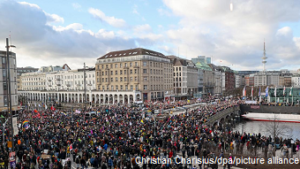 taken hold of society, various mental illnesses such as depression and panic disorder have appeared, and societies seem to be closing in on each other, much to everyone’s surprise. Germany, always so far ahead, has seen the advance of the AfD (Alternative for Germany), which is the return of the ultra-right.
taken hold of society, various mental illnesses such as depression and panic disorder have appeared, and societies seem to be closing in on each other, much to everyone’s surprise. Germany, always so far ahead, has seen the advance of the AfD (Alternative for Germany), which is the return of the ultra-right.
The problem of immigration in Germany has now come to the fore, under the protest slogan “we are the cordon sanitaire”, when it happened an anti-immigration motion and a narrow vote on the Migration Flow Act, criticized the candidate for German Federal Chancellor, Friedrich Merz, of the Christian Democratic Union (CDU), led to demonstrations across the country.
The candidate is the front-runner to take over the German government in the February 23 election, although he is conservative and distances himself from the AfD’s ultra-conservative pretensions.
The significance of these movements, laws and the growth of increasingly conservative positions is a reaction to the sense of the crumbling of the civilizational roots of the various societies and a growing movement of moral and political deterioration of social institutions.
This is not a comfort zone, but a “safety zone” in the face of the ever-present threat of an unprecedented civilizational crisis, and without an element of peace and hope that can mitigate these processes of unrestrained changes in customs.
Fear is when the moral reserves of hope and faith in the future shrink, both on a personal and social level. Young people who prefer to shut themselves away and stay “hidden” at home are a reflection of this “safety zone”, while those who go out abandon any limits.
In addition to combating extremism, the forces of peace must also sow peace and hope and reduce frontal attacks on extremism, which only strengthen it.
Not being afraid is also an important ingredient in these “battles”, showing serenity and calmness in the face of adverse situations helps to minimize the effects of intimidation and harassment that characterize extremist forces, they feed on fear and violence.
The true nuclei of hope are inclusive, they are not motivated by provocations or narratives that defend their positions as the only true ones, it is not about relativism, but about enlightenment and deactivating the fear that characterizes the most closed societies.
Only peace between peoples can guarantee the hope of a healthier and more fraternal world for all.
A fragile peace
Despite the ceasefire, Israel and Hamas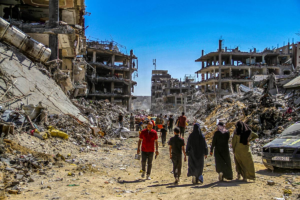 continue to exchange accusations of violating the agreement. Meanwhile, Hamas freed four female Israeli soldiers who were being held hostage (according to the Israeli government there will be 6) on Saturday 25/01, while Israel freed 200 Palestinians, 120 of whom, according to the Israeli press, are terrorists who have beheaded civilians or carried out other atrocities.
continue to exchange accusations of violating the agreement. Meanwhile, Hamas freed four female Israeli soldiers who were being held hostage (according to the Israeli government there will be 6) on Saturday 25/01, while Israel freed 200 Palestinians, 120 of whom, according to the Israeli press, are terrorists who have beheaded civilians or carried out other atrocities.
Israel has also been withdrawing part of its army from northern Gaza, but Hamas’ accusations are still preventing Palestinians from returning to the region (photo).
Ukraine is in a similar situation, where Russian soldiers are shooting at civilians who are trying to return to their homes, thus Russia is extending its occupation in eastern Ukraine, territories close to Donesk that Russia controls and claims ownership of.
Russia, according to Putin’s statement, sees the end of the war as favorable, but the situation is fragile because Russia has recruited another 150,000 soldiers, surpassing the mark of 1 million active soldiers, which is seen as disproportionate to the war in Ukraine, which has difficulties recruiting new soldiers and has an army of around 600,000.
While Trump’s new US government is talking about an immediate end to the war in Ukraine, suspicions are growing in Europe that Russia is creating conflicts in other regions of NATO, which has no more than 90,000 active military personnel, but each country has its own national army and military budgets are increasing in almost all of Europe.
In the Second World War, it should be remembered that the US only entered the war after the Japanese attack on Pearl Harbor (September 7, 1941), 2 years after the start of the war (September 1 and 2, 1939) when Germany invaded Poland.
The deportation of illegal immigrants in the US, Trump’s campaign promise, hit a new snag when Colombia rejected the extradition of their compatriots, and generated an immediate diplomatic conflict between the two countries, with economic barriers set up by the US, which were removed in the early hours of this morning (27/01) after acceptance by the deportees.
Venezuela’s borders also continue to be militarized, including with Brazil, which is not only bad for peace, but also for democracy, because the military power is growing.
The hope for peace cannot be naïve and deny the current war panorama. We need to disarm and recover the civil rights that are under threat in every corner of the planet.
Difficulties and possible peace
On Sunday morning, Israel again bombed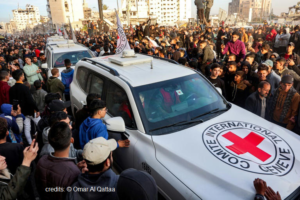 the north of the Gaza Strip, killing 8 people, due to the delay in handing over the list of hostages, Hamas admitted the delay “for technical reasons” but ratified the agreement, and issued the note: “As part of the prisoner exchange agreement, we decided to release today: Romi Gonen, 24, Emily Damari, 28, and Doron Shtanbar Khair, 31,” said Abu Obeida, Hamas spokesman.
the north of the Gaza Strip, killing 8 people, due to the delay in handing over the list of hostages, Hamas admitted the delay “for technical reasons” but ratified the agreement, and issued the note: “As part of the prisoner exchange agreement, we decided to release today: Romi Gonen, 24, Emily Damari, 28, and Doron Shtanbar Khair, 31,” said Abu Obeida, Hamas spokesman.
The three hostages released will be accompanied by IDF (army) and ISA (security) forces on their return to Israeli territory, where they will undergo an initial medical evaluation.” The hostages were held for 471 days.
The hostages were handed over to the Red Cross (photo) and sent to Israel. There are still two more stages before the agreement is fulfilled, according to several experts (such as Rubens de Siqueira Duarte, a professor in the Postgraduate Program in Military Sciences at the Army’s Command and Staff School in Brazil) it is an important step, but peace is still uncertain.
The stages are important because the path of (historical) mistrust must be overcome carefully and with goodwill on both sides, and we are now waiting for the prisoners who are Hamas militants to be released.
On the other dangerous front in Eastern Europe, Trump’s inauguration today, and the war weariness that is already present on both sides, could hasten a ceasefire, where the forces involved may prove more resistant, because they involve territorial issues that are difficult to negotiate (Russia already dominates 30% of Ukrainian territory, which only has the Kursk region taken from the Russians).
It is believed that Trump should stop supporting Ukraine and then it would be forced, in his nationalist logic that they should get involved in “America first” issues, but threats to Greenland and Canada are unacceptable for world peace.
Any agreement must also, as in the Hamas/Israel case, have bilateral concessions.
Peace is desirable, the ceasefire is a step, but to be lasting it must have fundamental aspects of peoples’ rights and humanitarian conditions respected.
Urgent: Israeli cabinet approves peace agreement
Israel’s cabinet of ministers has voted in favor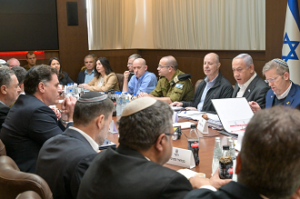 of a ceasefire that will come into effect on Sunday, will initially last 42 days, provides for the phased return of hostages and Israel’s gradual withdrawal from the Gaza Strip.
of a ceasefire that will come into effect on Sunday, will initially last 42 days, provides for the phased return of hostages and Israel’s gradual withdrawal from the Gaza Strip.
According to the Times of Israel, 24 ministers voted in favor, while eight voted against approval, Communications Minister Shlomo Karhi did not attend, the note says: “the government approved the framework for the return of hostages”.
Qatari Prime Minister Sheik Mohammed bin Abdulraham al Thani, who mediated the agreement, stated the “need for both parties to commit to the implementation of all phases of the agreement” to avoid “civilian bloodshed”, the details of the second and third phases will be known after the implementation of the first phase.
May this peace spread to other regions in conflict and serious threats from imperial forces.
Peace or truce in the Middle East ?
A peace agreement has been celebrated in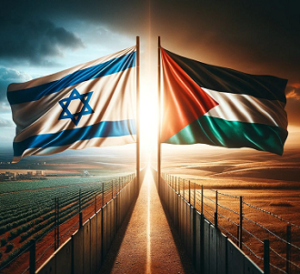 the Middle East, but there are still doubts about the real conditions of this agreement, as bad agreements only postpone hatreds and reorganize forces.
the Middle East, but there are still doubts about the real conditions of this agreement, as bad agreements only postpone hatreds and reorganize forces.
A ceasefire agreement only means a new military balance in the region, according to Israeli Prime Minister Binyamin Netanyahu, in practice with the United States calling the shots in the region and a retreat by Iran, the fall of a long dictatorship in Syria has contributed to this, but there will be peace without the reconstruction of humanitarian conditions in the region and in Yemen.
Before the October 7 attack by Hamas on Israeli territory, Iran was calling the shots in the region, including well-trained terrorists in the Gaza Strip, where Palestinians live under constant hostility from Israel, and this escalated after October 7.
We need to restore humanitarian conditions in the region, and understand that poverty in Yemen is one of the worst in the world, so a truce is not enough, we need to get to the root of the war.
In more than 40 years, few agreements have been successful and the crisis continues in the region. Since the Six Day War in 1967, agreements signed between Israel and Egypt, between Israel and Jordan, the central issue between Palestinians and Israelis has not been resolved, a direct agreement is needed.
The agreement, officially announced in Qatar by Prime Minister Mohammed bin Abdulrahman Al Thani, was reached between Hamas and Israeli negotiators, which is a good start because it is direct between the parties.
His words, “hopefully, this will be the last page,” are very significant, but one cannot underestimate the conditions in the medium and long term, in other words, re-establishing humanitarian conditions in the region and not thinking of Yemen as a separate chapter, it’s Houthis’ headquarters, they attacked a “vital” post in Israel yesterday, before the agreement.
Regarding the hostages who are due to be released soon, of the 251 captured by Hamas on October 7, 2023, 94 are believed to be still in Gaza, 60 are alive and 34 are dead.
It is now necessary to disarm the warring spirits, not only in the region, but throughout the planet.
Urgent: According to the Associated Press, Israel’s cabinet has not yet ratified the agreement, says Hamas has imposed “new” concessions: “The cabinet will not meet until the mediators notify Israel that Hamas has accepted all the items in the agreement,” said Netanyahu, fight, pray or think positive for PEACE.
False prophets and hope
Bad religion and false prophecies are those that do not announce the good news; there is no historical or truly prophetic reading of what the divine kingdom is: peace and hope.
do not announce the good news; there is no historical or truly prophetic reading of what the divine kingdom is: peace and hope.
Yes, it is true that we are in dark times, but it is still necessary to announce peace and hope. It is a fact that man has built civilization on wars and revenge to this day. However, it was peace and hope that developed agriculture, commerce, and the production of social goods. Even in the midst of wars, hope survived and made its way.
They are bad Bible readers. When the disciples asked when the times of destruction would come, the reading says in Luke 21:8-9, “Jesus answered, ‘Watch out that you are not deceived. For many will come in my name, saying, “I am he!” And again: ‘The time is near’. Do not follow these people! When you hear of wars and revolutions, do not be terrified. These things must happen first, but the end will not come right away”
The reading about world conflicts continues (Luke 21:10-11): “And Jesus continued: “Nation will rise up against nation, and country will attack country. There will be great earthquakes, famines and plagues in many places; fearful things will happen and great signs will be seen in the sky”, but this is not the prophecy but rather what men will do before a time of peace and a true civilizing process on the planet. We learn more through pain than through reason and love. Even though these times are said to be rational, the vision of the whole, of the Earth as a homeland common to all peoples and nations, has not yet arrived. Worldly power prevails, attempts at plunder and revenge among peoples, and there is nothing divine in this, it is just the insanity of a shallow and antisocial rationalism.
The hope is that it will lead men to another level of civilization, that will help the poor, that will renew life and healthy models of development. Even what is considered a principle of sustainability is unable to manage the Earth’s resources.
A new civilization will be the one that survives these dark and intemperate times, as the forgotten cardinal virtues say (last week’s post by philosopher Philippa Foot): temperance, prudence, wisdom and courage are forgotten moral virtues, but not for everyone.
War escalation and hope
The use of long-range weapons by Ukraine and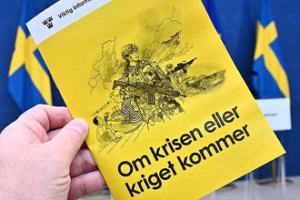 hypersonic missiles that can carry atomic payloads have already been tested in the war, and the threat of war with European countries has even appeared on Russian TV and made headlines around the world.
hypersonic missiles that can carry atomic payloads have already been tested in the war, and the threat of war with European countries has even appeared on Russian TV and made headlines around the world.
NATO military bases in Germany, Warsaw and London appear on a supposed map of first strikes in case Russia feels threatened, internally it has already changed its statutes on the use of nuclear weapons, breaking international agreements, and the Kremlin has authorized an increase in the production of missiles for these nuclear payloads.
The psychology that can be understood about Putin is that he’s not bluffing, and the Nordic countries seem to be the most afraid of a Russian attack. Norway distributes a handbook to its population on what to do in the event of environmental disasters or wars, alluding to this, and Finland and Sweden (pictured above) have already prepared for this hypothesis and are new members of NATO.
The war between Israel and Hezbollah continues to escalate. On Saturday (23/11), an Israeli attack killed at least 11 people and injured 23. The type of missile used is capable of hitting even bunkers and, according to the authorities, there was a strong explosive explosion after the attack.
At least there are attempts at peace agreements there, but negotiations seem to be stagnating. In Eastern Europe, it is hoped that after the take office Donald Trump, who won the US elections, some kind of agreement will be reached, but Ukraine would certainly lose part of its territory.
Hope is never forgotten among people who want peace, more than that who reject hate speech and war, because many of those who talk about peace don’t really want it, they believe that some kind of “victory” is possible on battlefields, where everyone loses.
So we can do our bit, if the war becomes unpopular the governments will move, the only thing that can move them is public opinion, because not even a possible economic, environmental or civilizational catastrophe moves them, despite the rhetoric.
COP20 and geopolitics
The topic will not be touched upon directly, as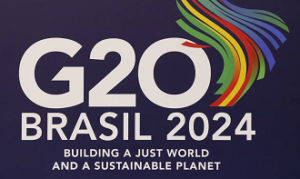 Arab countries such as Egypt and Turkey are taking part in the conference and Russia will be present through Foreign Minister Serguei Lavrov.
Arab countries such as Egypt and Turkey are taking part in the conference and Russia will be present through Foreign Minister Serguei Lavrov.
Brazil is hosting the conference, which is expected to last until Monday. The G20 or Group of 20 was formed with an economic purpose after the successive financial crises of the 1990s. In 1999, finance ministers and heads of central banks from the 19 largest economies in the world, plus the African Union and the European Union, aimed to create a strong economic group that would coordinate global actions in the economy.
These countries account for 90% of the world’s GDP and 80% of world trade (including intra-EU trade) and two thirds of the world’s population. We would expect something of great economic interest, but issues such as gender options and geopolitics (indirectly the topic will be touched on) should be avoided and, as in previous editions, the climate should be the big topic, but there is an expectation that the topic of taxing large fortunes will be taken forward.
The basic text is already being drafted behind the scenes and the final text is expected to be presented in the early hours of Tuesday morning. The meeting is important for peace, even if it is not the subject of the meeting, but the talks between the leaders and ministers of these countries will improve relations.
Meanwhile, the war in Eastern Europe is taking on dramatic contours, the Ukrainian capital Kiev has been constantly attacked by drones and the United States has given Kiev permission to use long-range missiles that could hit targets inside Russia.
In the Middle East, Israel is expected to reach an agreement with Lebanon, but the bombings continue and Iran is not taking part in the negotiations, so Hezbollah remains at war.
It is hoped that in addition to the traditional issues of gas emissions and climate problems, COP20 will launch some kind of nod towards peace, given that Russia, China and the United States will be present at the conference.
In a new geopolitical scenario, the pax romana
During the election campaign Donald Trump said he would find a solution to end the war “in one day”, his recent actions and speeches point to a Pax Romana (in the image Emperor Julius Caesar on campaign).
he would find a solution to end the war “in one day”, his recent actions and speeches point to a Pax Romana (in the image Emperor Julius Caesar on campaign).
The Roman peace was considered to be when a nation submitted to the Roman Empire, and the conversations of the new president-elect (not yet sworn in) Donald Trump with Putin and Zelensky, as well as his speech on the Middle East, point in this direction.
According to the American newspaper the Washington Post on Sunday, Trump has already spoken to Putin and Zelensky. He told the Russian president that we must avoid escalating the war and Zelensky said that he would continue to support Ukraine, but without clearly establishing what the limits and budgets would be.
With Israel, the message to the anti-Semites was tougher, telling them to desist from taking action against Israel.
Curiously, in the American elections, the Republican had a slight lead with 21% of the Islamic vote against 20% for the Democrat, but the majority was for the Green Party, with Jill Stein getting 53% of the vote, a segment she won in the elections for the House of Representatives.
Trump’s victory was celebrated by Israelis; there the pax romana will be clearer, submission to Israel’s interests and acceptance of territorial limits.
His speech on the region was what he told Netanyahu to “get it over with” although he added “the killing has to stop”.
The problem with the pax romana is that it doesn’t eliminate disputes and grudges, which remain dormant and can explode again at any moment, in short, it’s what Trump called “peace through strength”
True peace means new horizons beyond conflicts and peoples who can live in peace through reasonable agreements.

